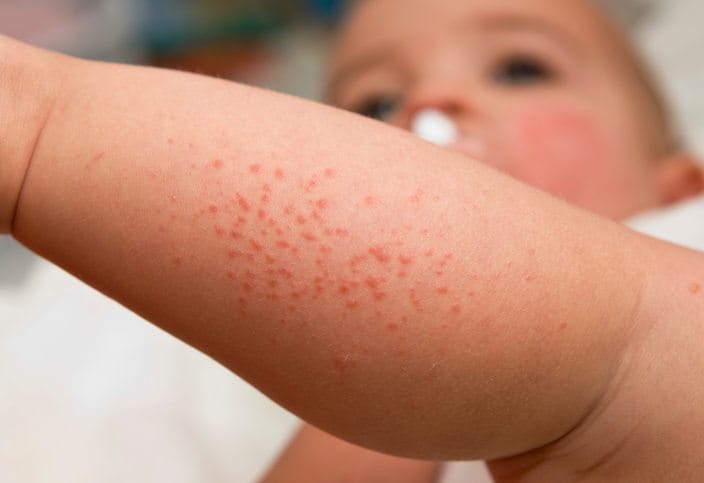 Photo: Getty
Photo: Getty “I definitely think food allergy is increasing and that adults are developing new food allergies as adults,” Gupta, an associate professor of pediatrics at Northwestern University and Lurie Children’s Hospital in Chicago, said of the new findings drawn from a population sample of over 40,000 adult Americans.
Shellfish was the most common food allergy reported among study participants, with almost 4 percent saying they got this diagnosis as an adult. Peanut allergy was the next most common adult food allergy, at 2.4 percent, with tree nut allergy following at 1.9 percent.
The data has not yet been parsed to determine the percentage of adults who have multiple food allergies. “We did break out the tree nuts in this study, as well as shellfish and fin fish, so we can get a more accurate idea of what adults are allergic to specifically,” Gupta told Allergic Living.
Survey Asked Many Questions
Gupta’s 2011 research on the prevalence of food allergies in children, published in the journal Pediatrics, found that 8 percent, or 1 in 13 U.S. children, has food allergies. That research prompted many adults to ask her for a study that quantifies how many adults have food allergies – and how many of those developed past childhood.
With the help of AmeriSpeak, the University of Chicago’s consumer research platform, an adult survey sample was created for this study to closely mimic demographics of the U.S. population. The survey was lengthy, asking adults whether they have a food allergy, along with multiple related questions to ensure that the individual had a true IgE antibody-based food allergy. The survey questions went further to ask what health-provider had made the food allergy diagnosis and what symptoms an individual experienced when eating an allergenic food.
 Dr. Ruchi Gupta
Dr. Ruchi Gupta The ‘Why’ of Adult Allergy
The Chicago researcher is intrigued by the “why” of food allergies in adulthood. “I’d like to be able to tell you why or what potential triggers could be causing this,” she says.
In keeping with that effort, Gupta and fellow researchers asked the food-allergic adults: “Do you have any sense of factors related to your food allergy development?” The researchers received many suppositions, such as hormonal changes of pregnancy or menopause, a virus or other illness, and even moving to another area of the U.S. or a different country.
Gupta said she hopes to be able to answer the question of how many children are keeping their allergies into adulthood, and how many adults are developing new ones. “We really need to understand the public health impact, and the impact on individuals as we continue to do research in this area.”
Related Reading:
Study Finds Doubling of Adult Food Allergy
All About Fish, Shellfish Allergies





